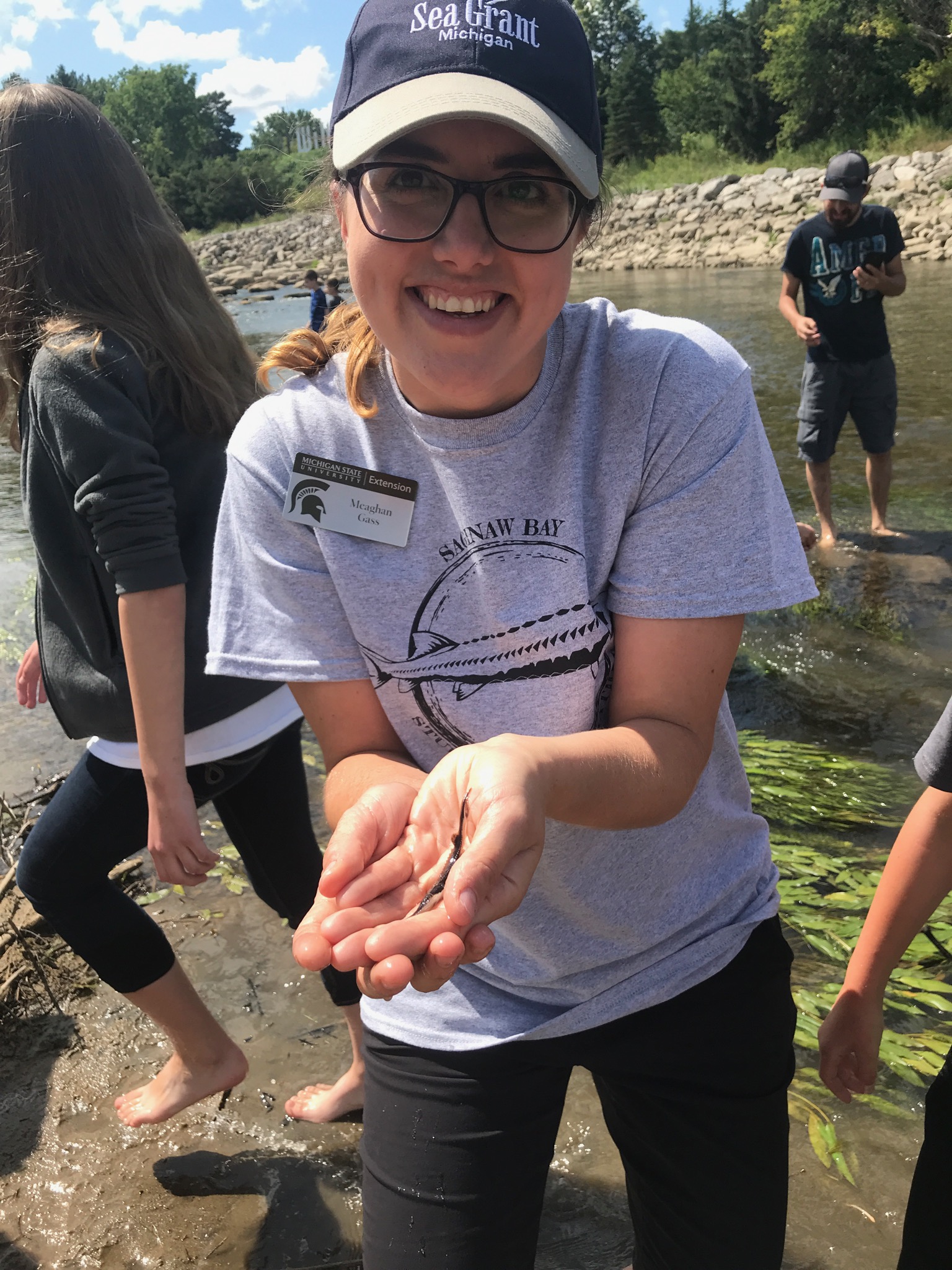MSU Extension educator Meaghan Gass named Informal Science Teacher of the Year by Michigan Science Teachers Association
Serving in the Saginaw Bay region, Gass focuses on Great Lakes literacy, community resilience, and place-based and natural resources education.

The Michigan Science Teachers Association (MSTA) has named Michigan State University Extension educator Meaghan Gass as its 2024 Informal Science Educator of the year. Gass, a Michigan Sea Grant Extension educator, serves in the Saginaw Bay region focusing on Great Lakes literacy, community resilience, and place-based and natural resources education. She received her award during the organization’s annual awards banquet in Lansing this March.
MSTA is a state chapter of the National Science Teachers Association, one of the largest science organizations of its kind in the United States. Its mission is to stimulate, support and provide leadership for the improvement of science education throughout Michigan. According to MSTA, Gass was chosen for her “unique and extraordinary accomplishments, active leadership, scholarly contributions, and direct and substantial contributions to the improvement of non-school based science education over a significant period of time.”

Gass is a leader in the field of place-based and environmental education. She consistently seeks innovative ways to engage educators and students to excite them to learn more about the Great Lakes — while increasing awareness, stewardship, and informed-decision making.
“I am so honored to have received this recognition from MSTA” said Gass. “I have learned so much from the many formal and non-formal educators I have worked with in my Extension role, and I have also met so many inspiring educators through this organization and at its annual conference.”
Gass is also a co-leader for the regional Center for Great Lakes Literacy (CGLL) which is a Sea Grant education network and partnership. The network promotes Great Lakes literacy among an engaged community of educators, scientists, residents, and students by encouraging hands-on experiences and basin-wide stewardship. Gass supports educators through professional learning opportunities, including the Lake Huron Place-based Education Summer Teacher Institute and Great Lakes Literacy education exploration. In addition, she regularly partners with 4-H for youth development opportunities such as the Saginaw Bay 4-H Fish Camp.
“My favorite Great Lakes Literacy Principle is: ‘Much remains to be learned about the Great Lakes,” said Gass. “While there is much we may not know, by learning and working together with youth and adults we share and improve our knowledge and protecting this freshwater treasure.”
Michigan Sea Grant helps to foster economic growth and protect Michigan’s coastal, Great Lakes resources through education, research and outreach. A collaborative effort of the University of Michigan and Michigan State University and its MSU Extension, Michigan Sea Grant is part of the NOAA-National Sea Grant network of 34 university-based programs.
This article was prepared by Michigan Sea Grant under award NA22OAR4170084 from the National Oceanic and Atmospheric Administration, U.S. Department of Commerce through the Regents of the University of Michigan. The statement, findings, conclusions, and recommendations are those of the author(s) and do not necessarily reflect the views of the National Oceanic and Atmospheric Administration, the Department of Commerce, or the Regents of the University of Michigan.



 Print
Print Email
Email

